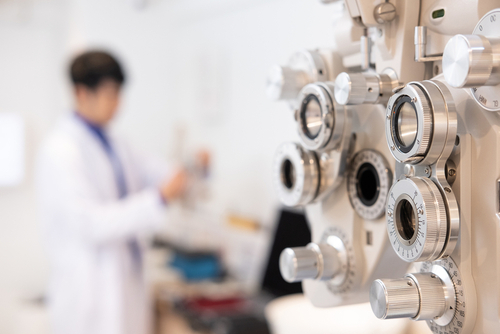Posted by: Associates in Ophthalmology (NJ) in Eye Health
Keeping your eyes healthy is essential, but insurance doesn’t always cover your needs. Quality eye care can be expensive, so finding ways to reduce costs can help your budget.
One great way to save on vision costs is with a flexible spending account. You may have access to one and not even know!
Keep reading to learn more about how you can use your flex dollars on eye care!
What Is an FSA?
An FSA, or flexible spending account, is an account in which you can hold money specifically for healthcare costs. It is not like a normal bank account, though.
Any money you put into the account is not taxed when withdrawing or depositing. Due to this fact, you save money equal to the tax rate.
As an example, imagine your tax rate is 10%. If you spent $1000 using your FSA, you would save $100 on healthcare costs.
Those savings add up quickly. Even more importantly, it’s free money!
What Can I Use My FSA For?
An FSA is specifically used for medical expenses that are not covered by insurance. You can use your flex dollars for prescription costs, over-the-counter medicine, medical supplies, test kits, dental care, and, of course, vision and eye care.
You can also use your FSA towards your deductibles and copayments for insurance. However, FSAs cannot be used for insurance premiums.
There are a few other limits and rules about FSAs that you should be aware of.
What Are the Limits On My FSA?
It may seem like a good idea to keep piling in money to your FSA, but there are a couple of reasons why you may not want to do that. First of all, FSAs are limited to $2,850 per year.
However, FSAs are individual, so your spouse will be able to use their own FSA if they have one. Second, FSAs do not roll over, typically.
You generally need to spend all of the money within a year or risk losing it. There are some exceptions to this rule.
If you get an FSA through your employer as a work benefit, they may offer a grace period. This can be up to two and a half months after the year, but you’ll need to check your specific benefits with your employer.
Some employers also allow funds to carry over. However, this is limited to $570 per year.
It is important to have all of the information for your specific FSA before you start using it. To maximize your savings, it’s best to only put money that you will use into the account.
What If I Don’t Have An FSA?
FSAs are linked to your job as a work benefit, but not all companies offer them. There is a similar account that you may be able to create yourself with a bank or credit union.
A health savings account, or HSA, also allows you to set aside pre-tax dollars for healthcare costs. Unlike an FSA, HSAs roll over every year and can even earn interest!
Only people with high-deductible health plans can get an HSA. Many plans also come with fees, so you’ll need to do your research before opening one up.
For questions about FSAs, talk with your employer. For questions about HSAs, speak to your bank.
Do you want to use your flex dollars from your FSA account for your eye care? Schedule an appointment at Associates in Ophthalmology in Livingston, NJ, today!


